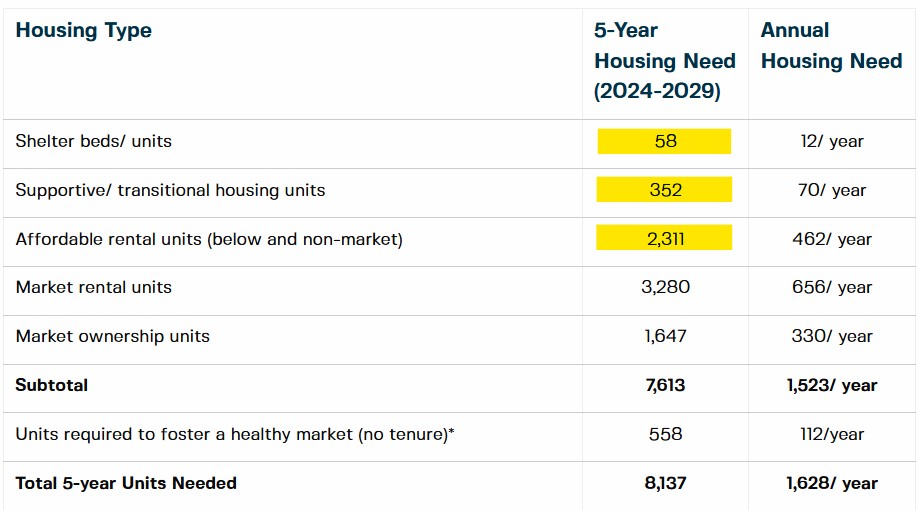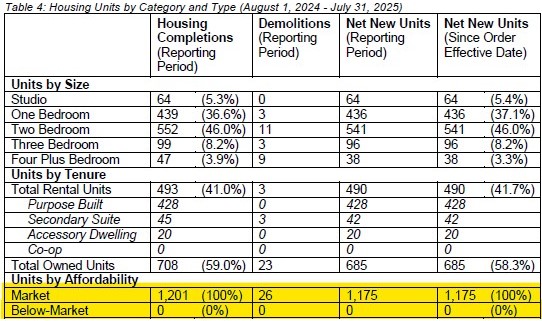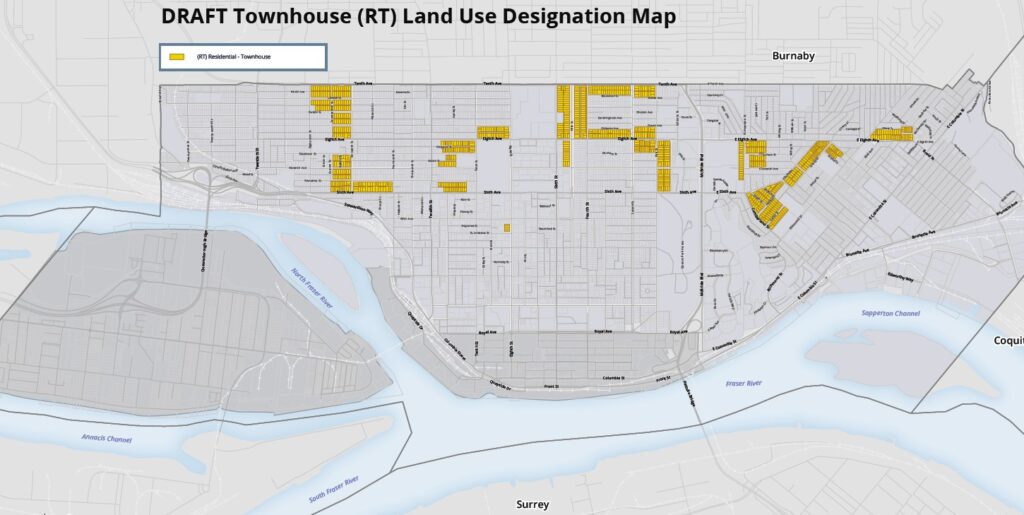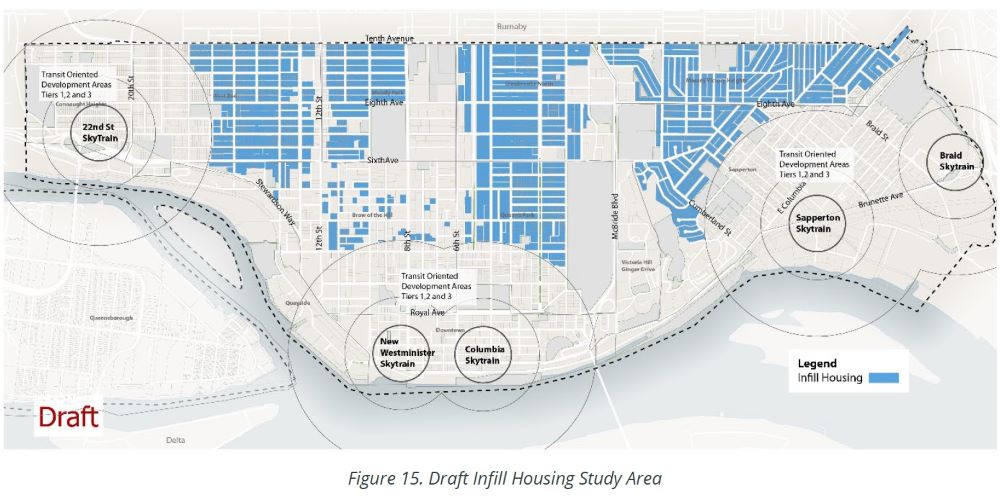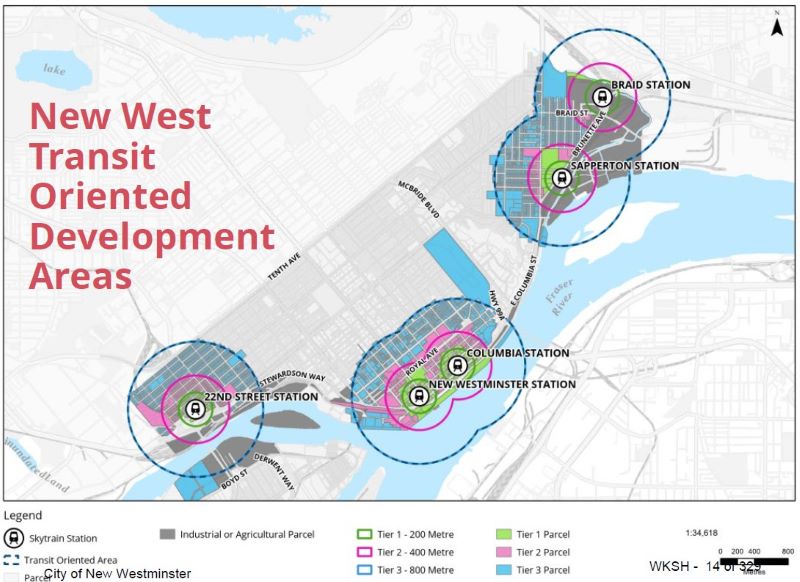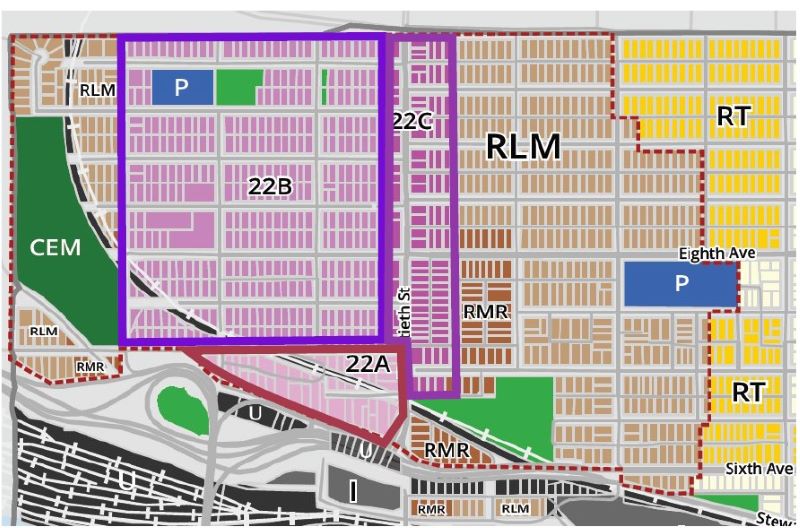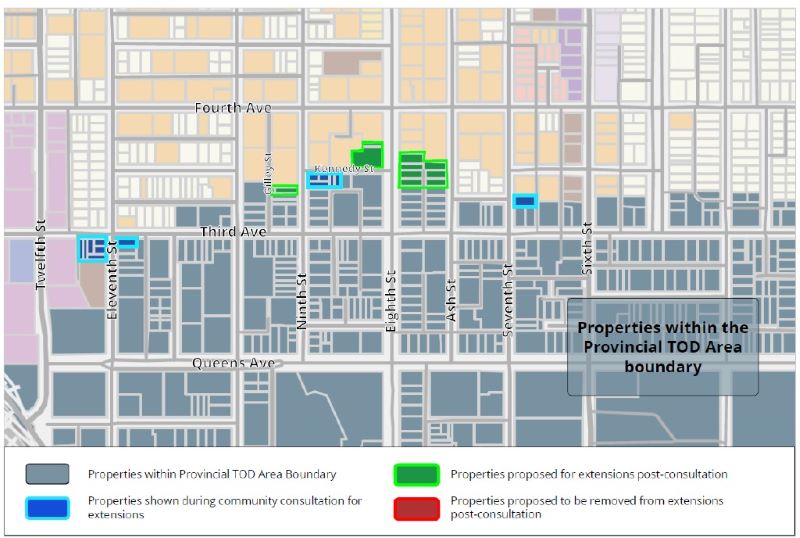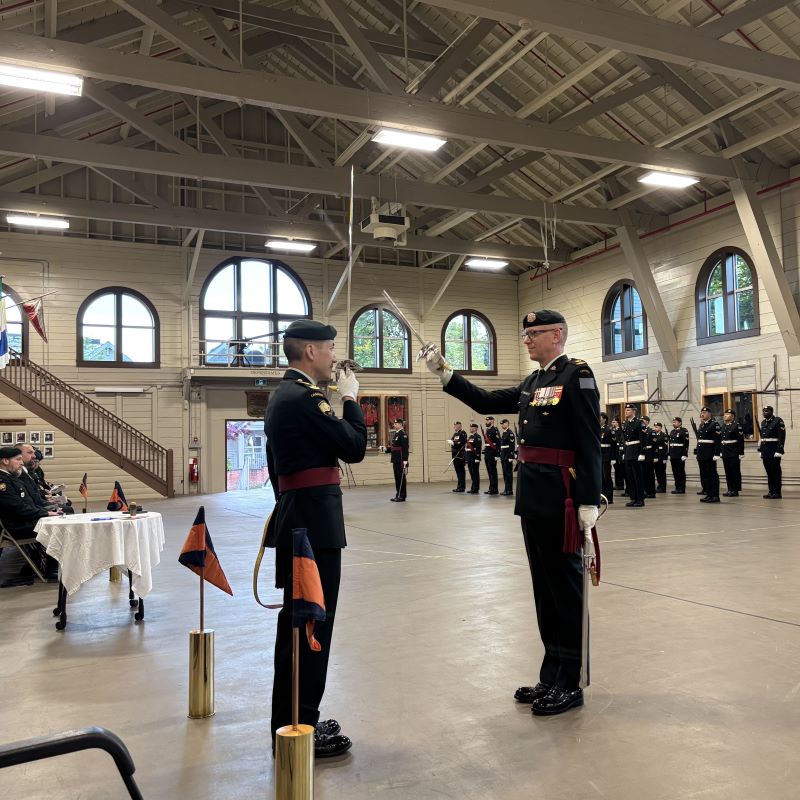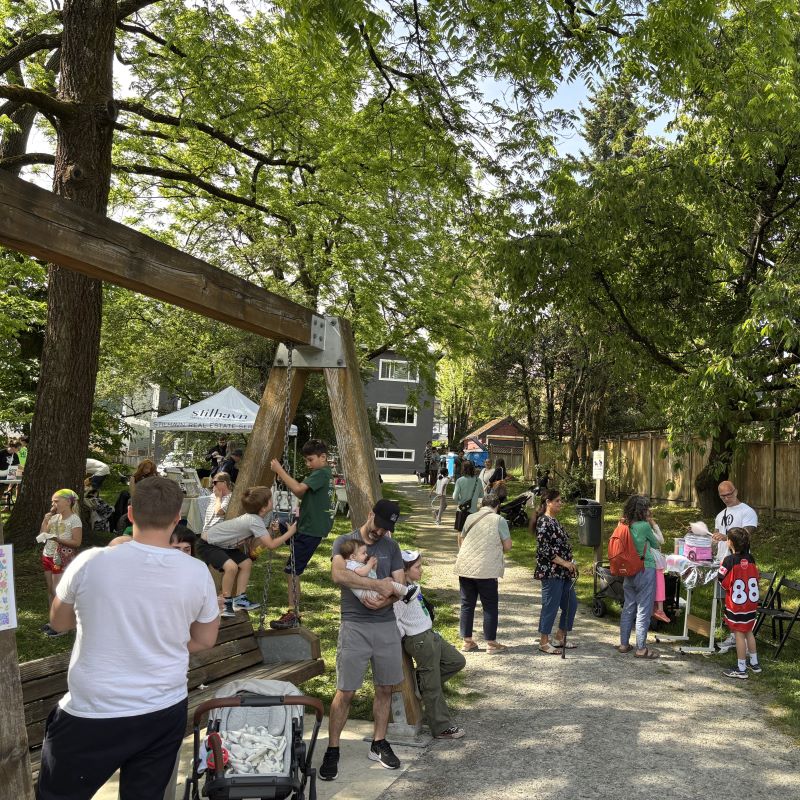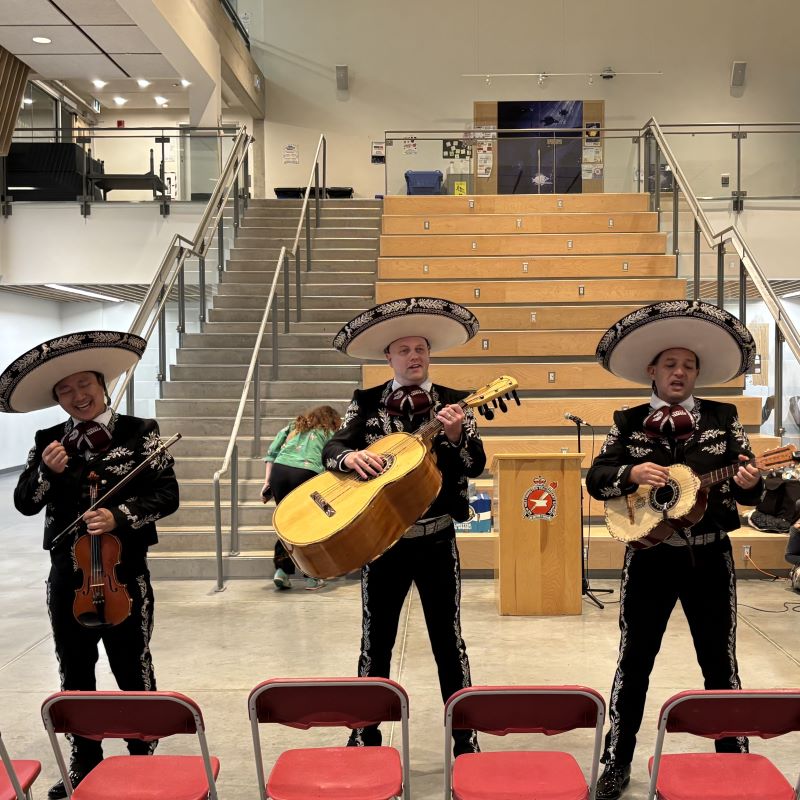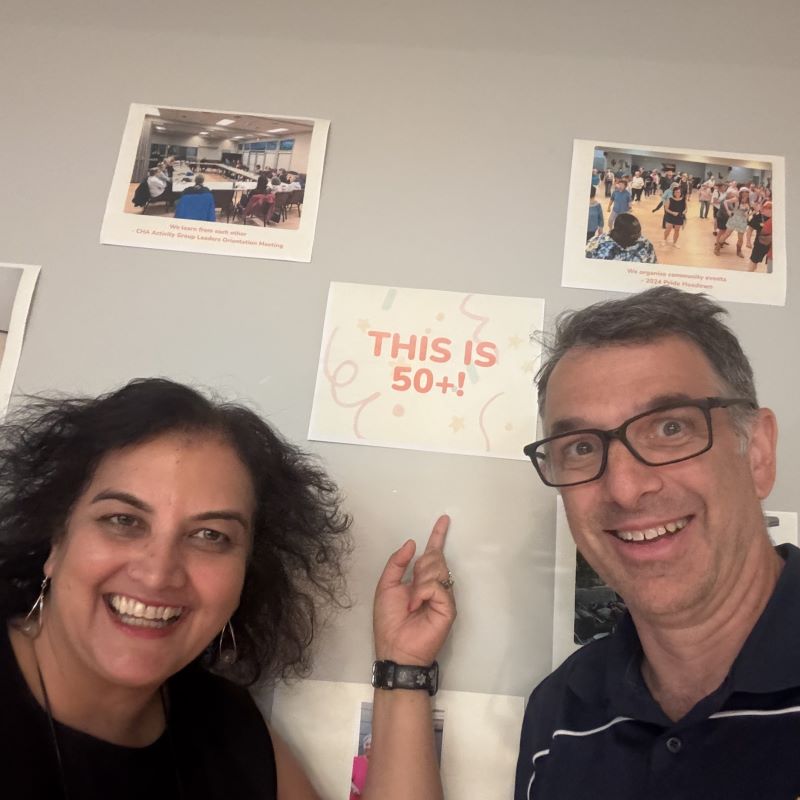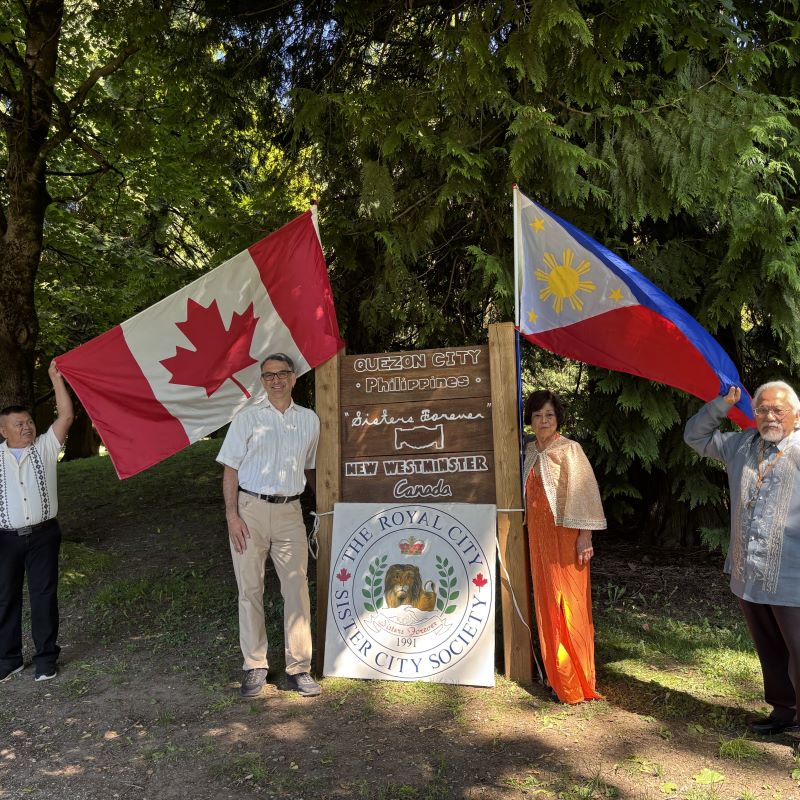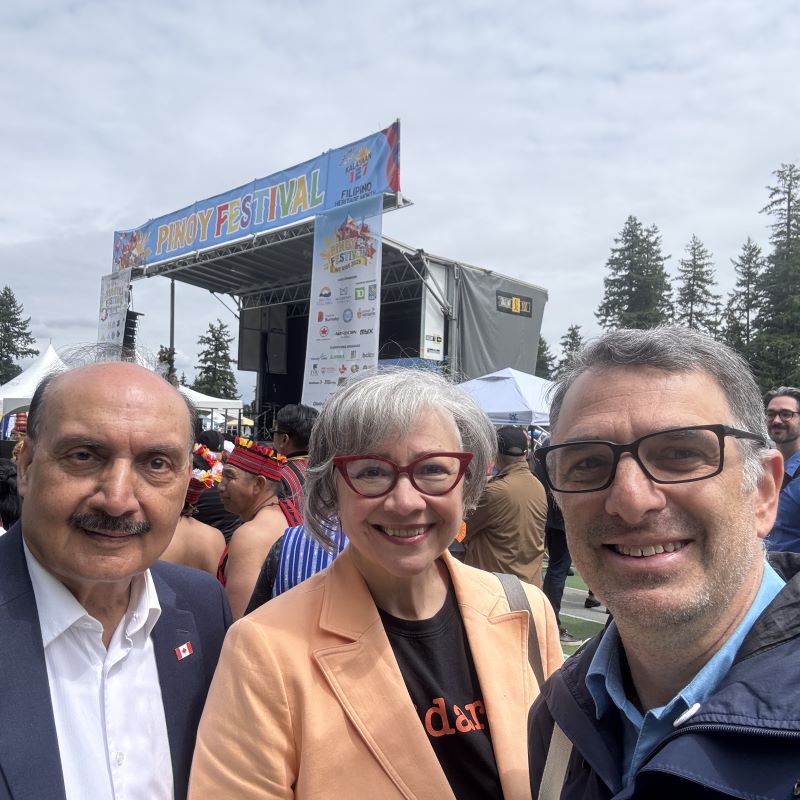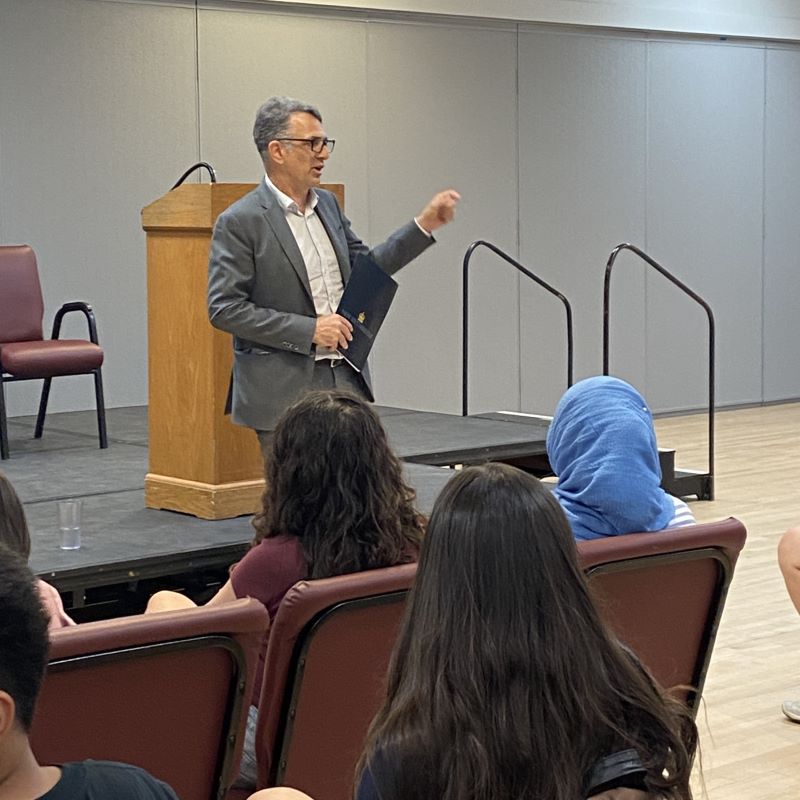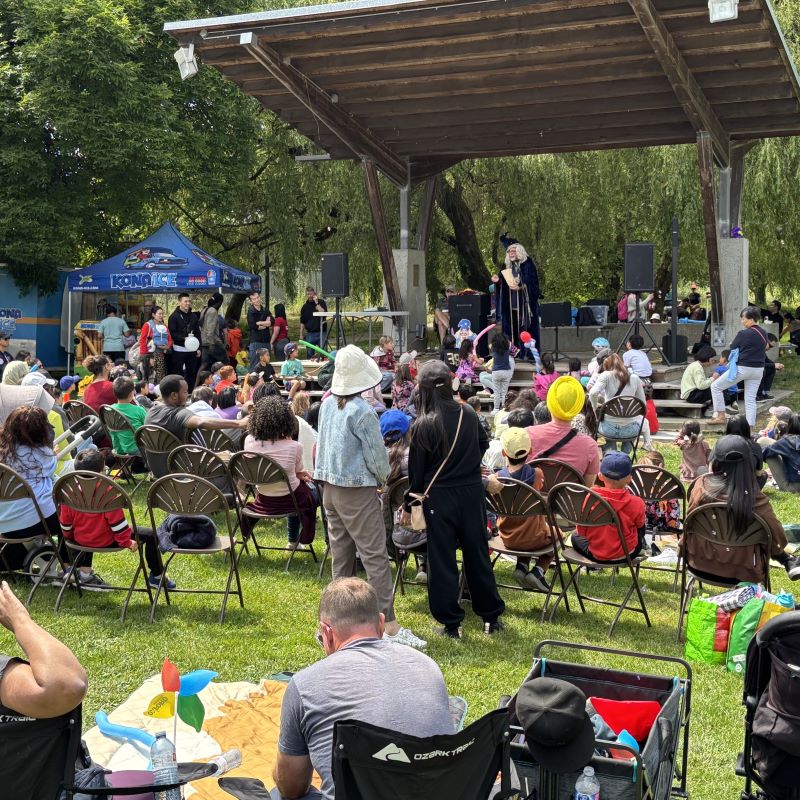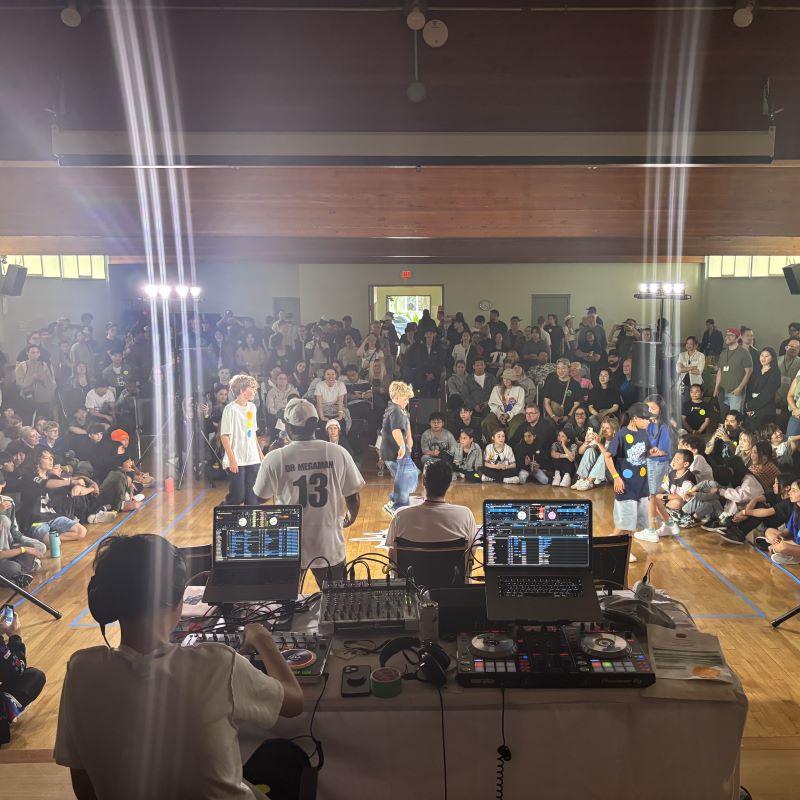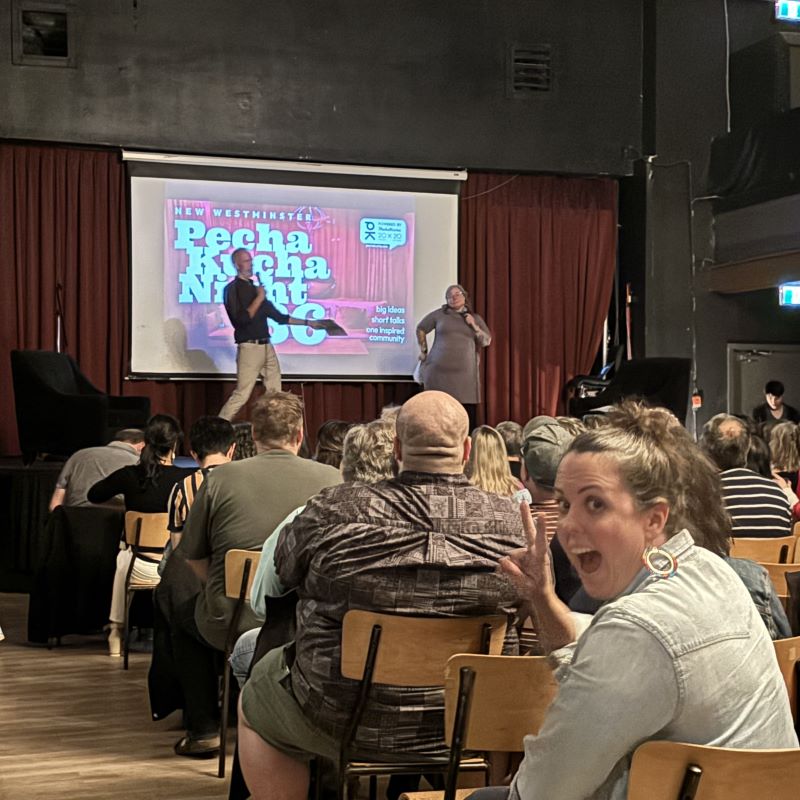Another eventful meeting with a pretty stuffed agenda. I am going to avoid some of the drama of the meeting, because it is more about the work than the disruptions, and we got a lot of good work done thought we did not get through our entire Agenda. Here is the summary of what we did get through starting with Unfinished Business from the previous meeting:
Exploring the Implementation of Quiet Zones in New Westminster
Submitted by Councillor Fontaine
WHEREAS quiet zones in cities across Canada have been successfully used to reduce noise pollution, enhance livability, and promote public health, particularly in residential, institutional, and high-pedestrian areas;
WHEREAS the City of New Westminster currently lacks a formal framework for identifying or designating quiet zones, and increased urban density, traffic and train whistles have led to rising concerns about noise impacts;
WHEREAS the implementation of quiet zones requires careful planning, community consultation, signage, and possible bylaw adjustments to ensure equitable access and effective enforcement;
THEREFORE BE IT RESOLVED THAT Council direct staff to explore the feasibility of introducing designated quiet zones in New Westminster, including a review of best practices from other municipalities, potential criteria for zone selection, necessary bylaw amendments, and options for community engagement and enforcement, and report back with recommendations.
Far from lacking a framework, the City has a Noise Bylaw that includes Quiet Zones in schedule B of the Bylaw, so I offered an amendment of the Bylaw to more fairly reflect this condition, and asks staff to come back with a review of that framework. I also wanted to make clear that any Quiet Zones would have no power over train whistles, which are federally regulated and required by the Rail Safety Act. That said, the major complaint we hear about noise is generally traffic noise (someone wise once said “cities are not loud, cars are loud”). Traffic noise is already regulated in our noise bylaw, and by the Motor Vehicle Act section 7a, but are traditionally difficult to enforce. So I offered the following amendment that was approved by Council:
THEREFORE BE IT RESOLVED THAT Council direct staff to review how quiet zones in New Westminster are designated, and review best practices from other municipalities on enforcement of noise bylaws and the Motor Vehicle Act as they relate to traffic noise, necessary bylaw amendments, and options for community engagement and enforcement, and report back with recommendations.
Heritage Revitalization Agreement Bylaw (318 Sixth Avenue) No. 8509, 2025 and
Heritage Designation Bylaw (318 Sixth Avenue) No. 8510, 2025
These Bylaws that permanently protect one house in Queens Park while the lot is subdivided and second home is built on the new lot were adopted by Council.
Bylaw Notice Enforcement Bylaw No. 7318, 2009, Amendment Bylaw No. 8526, 2025 and Municipal Ticket Information Bylaw No. 8077, 2019, Amendment Bylaw No. 8527, 2025
These Bylaws that allow us to enforce recent changes in our Business Licence Bylaws around permitting air conditioners in all rental apartment buildings was approved by Council.
We the moved the following items On Consent:
Appointment of City Officer
There are several jobs in the City that have statutory duties under provincial legislation, one of those is the Chief License Inspector. Although Council does not hire or fire people (except the CAO), we do have to appoint these “officers” through Council resolution. This resolution shifts the title of Chief Licence Inspector from our Director Community Services to our Manager of Economic Development.
Housing Agreement: 1923 & 1927 Marine Way (Affordable Rental Housing) – Bylaw for First, Second and Third Readings
Council previously approved the rezoning of this affordable housing project in the West End, this is the Housing Agreement that secures the terms of the “affordable” part of the housing for 60 years, and provides some capital support through our Affordable Housing Reserve Fund to help with some of the capital cost of the project as that fund was set up to do.
This project will provide 89 new homes, mostly directed at young people aging out of provincial care and young moms with kids, aligned with the mandate of Aunt Leah’s Society who are the operator here. 30% of the units will be market rents, 50% will be “rent geared to income” where the rent will be adjusted to reflect no more than 30% of the residents income, and 20% deep subsidy units where rent will be 30% of income or Maximum Shelter Allowance, whichever is lower. Truly affordable housing.
Parks and Recreation Fees Bylaw No. 6673, 2001, Amendment Bylaw No. 8531, 2025
This is our annual setting of Parks and Recreation fees, which Council workshopped back on June 16th, and supported unanimously. Increases are generally 2.5% to keep up with inflation, and we do comparators to adjacent communities with similar service levels every year – not because it is a competition, but just to assure we are not out of touch with the market. Turns out compared to the region, most of our admission rates (17 of 30 admission categories, or 57%) are lower than both the regional average and regional median, and most of our rental rates (41 of 51 rental categories, or 80%) are lower than both the regional average and median, with many of our rental rates among the cheapest in the region.
We are planning a more comprehensive review once the Parks and Recreation Comprehensive Plan is completed in the early fall, but for now we are just doing inflationary adjustments.
Memorandum: Participation at the Canadian Centre on Substance Use and Addiction Municipal Leaders Table – April 13 to 16, 2025
Councillor Nakagawa received an invitation to attend this conference on Substance Use and Addictions for Municipal leaders back in April. As this is not an FCM/UBCM conference, and it was out of province, our travel policy asks for a public reporting out of the activities and expenses. This is that report!
Statutory Rights of Way for Metro Vancouver at TACC
Metro Vancouver has a major sewer line that runs through the old Glen Brook Ravine adjacent to təməsew̓txʷ. They already have a right-of way along the line, and təməsew̓txʷ was built to respect that right of way, but Metro wants two small additions to secure maintenance locations if need be. So we are giving them those, agreeing not to build on those spots, and if they have to tear them up, they will put them back as they were.
Summary of Historical and Current Funding and In-Kind Support for Hyack Festival Association and May Day Community Association
The issue of how much support the City gives Hyack Festival Association and the May Day Festival Association has become an unfortunate political football (see motion below), with much rhetoric about the City both increasing and decreasing their grant in recent years. This report provides the facts.
The HFA has done more than the Parade each year, but the number of different things they delivered each year has shifted significantly, and so has the grant the City provided them. At the same time, the City has evolved to a much more transparent and accountable granting mechanism, because these are public funds, and both the taxpayer and the auditors demand that we are transparent in how that money is allocated. It is no longer standard practice to provide free in-kind services out of operational budgets. In 2025, we received $1.8M in grant requests, and awarded about $1.0M in grants.
Since 2019, HFA has asked for support for their Ambassador Program, the Farewell to Summer fireworks, and the Hyack Parade. The Ambassador Program was suspended in 2022, meaning their grant request went down a little, but since 2022 HFA’s grant has gone up every year, from aobut $45,000 a year to about $68,000 in 2025. This is less than a peak of $88,000 in 2016, but again, HFA is offering fewer programs than they did in 2016 and (this important) their 2025 request was for a little over $72,000, of which they were awarded a little over $67,000. They received 93% of what they requested in 2025.
The May Day Community Organization has a very different history. This used to be a program run by the School District, and the City contributed grants to the School District to help support a very large district-wide event, and again we funded aspects of this operation (an annual banquet for example) out of operational funds with, at best, vague accounting for the costs. When the School District stopped running a District-wide event, a volunteer community group took over, and since 2021 have asked for grant support from the City. They have received between $3,000 and $8,000 every year since. In 2025 they requested $5,700, and were granted about $3,500.
This is just a data report, but that date become important as we talk about the motion regarding grants that comes up later in the meeting.
Zoning Amendment (102-128 East Eighth Avenue and 721 Cumberland Street): Bylaws for First, Second and Third Readings
The owners of a land assembly in upper Sapperton (by Resident Association maps) or Massy Victory Heights (by planning boundary) want to replace 10 older single family homes with 55 family-friendly townhouses. This is a project that has been in the works for several years, first appearing in front of the land use and planning committee in 2019, and looks to provide one of the most sought-after but hard to pencil out building forms in the city – townhouses on the mainland! The overall result is 55 homes where up to 30 are currently permitted.
The project is compliant with the OCP, but requires a rezoning. It is mostly complaint with the proposed zoning (1.03 FSR, heights and setbacks, parking, family friendly housing mix, etc.) but will require removal of many trees, mostly in fair to poor condition, so in the long term a healthier tree canopy will exist with the proposed 60 replacement trees. The public consultation was mixed as one would expect, a little more than half in support and a little less than half opposed.
The step we are at here is three readings of the rezoning bylaw, and council provided those three readings.
The following items were Removed from Consent for discussion:
2024 Consolidation of Public Compensation for Council Members
This is a report for receipt, and a type of addendum to the Statement of Financial Information the City provides (as do the other government organizations listed in the report) showing not just Council’s wages and expenses in the City, but their wages and expenses from external agencies that Council appoints members to serve. Elected people get paid to do their work, and to quote a locally-famous former civic blogger: “Given how much we pay [local government politicians], I think we’re getting good value for money. It’s clear that major cities across Canada pay their civic politicians peanuts, I think it’s time we seriously consider giving them a raise”
Crises Response Pilot Project: Q2 2025 update
We are about a half year in to the CRPP, and staff are reporting back to us on successes and challenges of bringing the program online. As we both received significant funding support from the Federal Government and have underspent in the first half of this year, we have sufficient budget to extend the program to the end of 2026.
Again, this program has just launched, but there are some great stories of success in here. The Outreach Team has connected with a lot of people and made hundreds of referrals, including helping a couple who were continually sheltering in the Sapperton Park public toilets connect with the supports they needed to get into safe permanent housing in the City and have safe permanent housing. The Operations Support team has seen training of frontline workers and increased street cleanliness work, while the Community Liaison Officers are supporting community concerns and now have a one-number Community Support Line to assure residents and businesses have 24/7 response to concerns. This is real work helping people in our community –exactly what the community is asking us to do in the face of the overlapping crises we are facing. On top of this, the advocacy team was instrumental in getting New Westminster the only Federal EFT funding to any community in British Columbia, reducing the cost to local taxpayers of this program to the tune of $1.46 Million.
There is a lots of work to do yet, and we know the long-term solution here will be senior government investments in housing and healthcare, but our CRPP is saving lives, reducing suffering, addressing community concerns, and saving the City money. I’m really proud of this City for doing this work.
Our City, Our Homes: Implementation of Housing Legislation and Housing Accelerator Fund Initiatives – Next Steps
The City has been working on addressing two sets of priorities – meeting the letter and spirit of the Province’s housing regulations (I wrote about <ahref=https://www.patrickjohnstone.ca/2023/11/housing-bill-44.html>Bill 44, Bill 46, and Bill 47shortly after they were passed) and meeting the terms of our $11.4 Million Housing Accelerator Fund grant from the Federal Government, both of which mean an update to our Official Community Plan. Council ran into some procedural challenges when this report came to Council in Workshop back in June 2, and we had really hoped to be at Public Hearing by now, but we are working those issues out and we have an updated approach and timeline to completing the OCP work.
The decision before us today is not the entire OCP update, just the process for us to review it and get us to that Public Hearing in September. Staff have recommended a structure of the discussion (not breaking up the OCP into sections, but doing it omnibus), and a timeline that is now a few months behind schedule (note – it is not staff behind schedule, they had these reports ready in June, it is Council that is behind). Still, we don’t like to do Public Hearings in August, so September is the best timeline, and we have already reached out to both the Province and the Federal government to apologize for missing our end of July deadlines and warning them we may not make our December 31 deadlines with the Public hearing in September, but have assured them we are acting in good faith and doing everything we can to get to Public Hearing by September.
Proposed Climate Action Priorities for Submission to the CleanBC Review Process
I have opinions about CleanBC. I think it is as aggressive a climate plan as any subnational government in North America has proposed and yet I have almost no confidence the Province will do the difficult work required to implement the plan in time ot make the targets they have set. BC is doing incredible work on climate that often goes underappreciated, from the zero carbon building code to funding the Local Government Climate Action Program, but we are still falling far short of where our targets need to be if we are going to meet our commitments to GHG reduction (and don’t get me started on the LNG carbon bomb that will almost certainly offset any gains we make by 2025).
With that as preamble the province is engaging in a review of CleanBC and is looking for feedback from the public and from municipalities and other stakeholders. Our Climate Action staff have provided a draft response here. I added a few comments for staff regarding the CleanBC commitment to vkt reduction datasharing with municipalities on vehicle emissions, and on needing more equity and adaptation language.
If you have opinions, share them with the province here.
Remedial Action Requirement: 53 Fourth Street
This older three-story apartment building downtown is falling apart. City buildings staff and Fire Inspectors have been keeping an eye on it for several years, and have been in touch with the owners and tenants. For a long time it seemed crooked but stable, but it is now at a point where emergency repairs and shoring are needed to assure the safety of the residents. The owners have not been moving at repairs at a pace that fills our building inspectors with confidence, so we are putting a remedial order on the building – essentially setting a deadline and saying “fix the building or we will do it ourselves and send you the bill”.
Rezoning Application: 912 Queens Avenue and 129-137 Tenth Street – Application Considerations
This is a challenging situation. A small developer has bought up several lots on the corner of 10th and Queens where there are some older buildings and want to build an 8-storey 75-unit residential and commercial building. When initially approaching the City back in 2023, they were told that they would need to address tenant displacement from the one multi-unit rental building on the site, and that the City was not likely to approve a large project that didn’t include a fifth property that is effectively surrounded by the proposed development. Though the project is in the 800m TOD area, the development as proposed would require both an OCP Amendment and a rezoning, and that the City’s interim treatment of TOD areas is that only rental will be approved, where this is predominantly a market strata proposal. There are also heritage considerations with a house on the proposal property and the potential locked-in property, as both are 19-centruy houses of unknown heritage value.
Overall, staff are only asking here that we ask the developer to come back with a revised proposal that includes the locked-in property, includes rental and non-market rental to address the loss of affordable rental with the demolition of the multi-family building on site.
Rezoning, Development Permit, and Development Variance Permit Application: 317-319 Howes Street – Additional Information
This is a new look at an older application that was sent back from Council back in 2023 due to a variety of concerns including site access and tree loss. At the time, the owner was hoping to put in 24-26 townhouses on a lot that is a bit locked in by the development next to it.
The proposal included doing significant soil prep on the site as is typical in Queensborough, including lifting the site to flood level with fill over the entire lot, which obviously make tree retention impossible. An updated survey shows parts of the property don’t need to be raised, and trees on that part may be preserved. However, I am still concerned about site access, as a single right-in right-out only access to an already challenging intersection at Howes and the Highway onramps does not appear it would serve the needs of the residents, and would likely result in a number of illegal and unsafe movements as people try to access the property. It would also create a less safe situation for folks access the transit stop, with nothing in this project projected to improve that stop.
This is a preliminary report, a check-in with council, and the message I have for the developer is that it will be hard to convince me that the site access here can be done in a safe way, but I would like to see what they develop to address this challenge (including, if possible, securing right of way through the adjacent property).
Westminster Pier Park – Activation and Community Re-Engagement
With the opening of the Esplanade and pending expansion westward of Pier Park, we are also assuring Pier Park is as accessible and welcoming as possible. We have had some challenges with vandalism (not something you only see in Pier Park, of course) and rare occasions of poor public behavior, mostly related to overconsumption of alcohol (and, noted clearly be staff, not related to homelessness). With the Afro World Expo, the Dia de Campo, and other events programming the space, we are getting more folks down there, so it is a good time to review how we do eyes on the park and address community standards. We are boosting some resources for cleanliness and introducing a Park Liaison Officer model, similar to the CLOs that are operating downtown.
Zoning Bylaw No. 6680, 2001, Retail Sale of Cannabis (416 East Columbia Street) Amendment Bylaw No. 8520, 2025
The City first approved Cannabis retailers back in 2019, through a cautious process that permitted retailers to operate, but managed the number of retailers during those early “gold rush” days of cannabis legalization, permitting one location per commercial district and screening the operators. The site in Sapperton was never activated as there was a falling out between the operator and the business owner, and back in late last year, Council agree to allow the approved operator to locate in a different location in Sapperton. Now that this application has been received, we are removing cannabis retail as a zoning use in the original property, to keep consistent with our policy.
We then had several Motions from Council:
Bus Shelters
Submitted by Councillor Nakagawa
WHEREAS the Safe Movement of People is a priority in the City of New Westminster’s 2023-2026 Strategic Plan; and
WHEREAS protection from the elements as well as the noise from street traffic while waiting for a bus improves people’s experience of taking public transit and makes it a more viable option for more members of our community;
THEREFORE BE IT RESOLVED THAT the City include the cost for building a minimum of three bus shelters with seating for consideration in the 2026 budget process; and THAT the bus stop adjacent to the Queensborough Connector be set as a priority for a shelter.
The jurisdictional gaps between the City, TransLink and bus shelter operators is not a great one, and it isn’t just New West where this is a problem. TransLink for the most part doesn’t do bus shelters, they rely on the local government to provide what is functionally an essential part of public transportation. So the city tries to provide them from our much smaller pot of capital money, but we save a lot of money by having a third party build and operate them as a platform for selling advertising. Unfortunately, these third parties put them where it makes sense from and advertising perspective, not from a what-the-bus-user needs perspective. Complicating this, one of the most in-need locations for shelter is on the Highway 91A and Howes Street interchange, which is not City land but Ministry of Transportation land, meaning we can’t install a shelter there without their approval.
Anyway, we need more bus shelters, and this site is definitely a priority, so I was happy to support this, and we will have a deeper conversation during the 2026 budget deliberations about whether capital cost is really the limiting factor.
Supporting Longstanding Civic Non-Profits through Prioritized and Multi-Year Funding
Submitted by Councillor Minhas
WHEREAS non-profit organizations such as those behind the May Day celebrations and the Hyack Parade have been delivering signature community events in New Westminster for over 50 years, contributing significantly to the city’s cultural identity, civic pride, and tourism economy; and
WHEREAS over the past decade, funding for these legacy events has been dramatically reduced, including a decrease in annual City support for the Hyack Festival Association from $150,000 to just $15,000 per year; and
WHEREAS these long-standing non-profits are now forced to compete for limited grant funding against newly formed organizations, creating barriers to sustainability and threatening the continuity of historic civic traditions;
THEREFORE BE IT RESOLVED THAT the City of New Westminster direct the Grants Review Committee to prioritize funding for long established non-profit organizations that have demonstrated sustained contributions to civic life and cultural heritage over several decades;
BE IT FURTHER RESOLVED THAT the Committee explore the implementation of multi-year funding agreements, for up to three years, to support the financial stability and long-term planning of eligible legacy organizations.
This motion got on the table, and I amended to add the following:
BE IT FURTHER RESOLVED THAT staff be instructed to include a 50% increase in the Community Grant funding envelope for 2026 as part of the 2026 Budget deliberations; and
BE IT FURTHER RESOLVED THAT the City continue to actively advocate to the Minister of Tourism, Arts, Culture and Sport to increase the B.C. Fairs, Festivals and Events Fund and also advocate to the Minister of Jobs, Economic Development and Innovation to provide increased support to local festival organizations, including arts and business improvement organizations who activate our communities, support cultural exchange and connection, and boost small business prosperity through festivals, fairs and events.
However the debate was cut short when Council failed to have quorum for the required 10:30pm vote to extend Council, so this item and the remaining few items on the agenda will appear on the next Council agenda in August. So… happy summer everyone?

